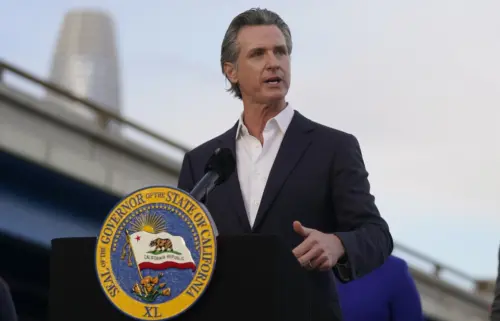United Methodists endorse change that could give regions more say on LGBTQ and other issues
By PETER SMITH
Associated Press
United Methodist delegates have overwhelmingly endorsed a constitutional amendment seen by advocates as a way of defusing debates over the role of LGBTQ people in the church by giving rule-making autonomy to each region of the international church.
Delegates voted 586-164 on Thursday for the “regionalization” proposal on the third day of their 11-day General Conference, the legislative body of the United Methodist Church, meeting in Charlotte, North Carolina.
The plan would create multiple regional conferences — one for the United States and others covering areas ranging from the Philippines to Europe to Africa.
Existing regions outside the United States — known as central conferences — already have the flexibility to adapt church rules to their local contexts, but the jurisdictions in the United States do not. This constitutional change would give the U.S. church that flexibility, while defining autonomy more closely for all of the regions.
The vote total easily passed the two-thirds majority required for an amendment to the United Methodist Church’s constitution. To become official, however, it will require approval by two-thirds of total votes cast in its annual conferences, or local governing bodies.
If ratified, one effect of the change is that it could allow for the American church — where support has been growing for the ordination of LGBTQ people and for same-sex marriage — to authorize such rites, even as international churches with more conservative positions on sexuality would not.
“The big change this petition brings is really for our brothers and sisters here in the United States, where you would finally be given the right to decide things which only concern you among yourselves, the same right that we have enjoyed for a long time,” said Christine Schneider-Oesch of Switzerland, a member of the committee proposing the changes.
The measure comes during the first General Conference since one-quarter of U.S. congregations left the denomination over the past four years — most of them conservative churches reacting to the denomination’s failure to enforce rules against same-sex marriage and LGBTQ ordination.
Advocates hailed the proposal as a way of decolonizing a church some say is too focused on U.S. issues, though one opponent, a Zimbabwean pastor, said the details of the plan are reminiscent of colonial-era divide-and-conquer strategies.
LGBTQ issues weren’t central to the debate on Thursday, but they are expected to arise in the coming days at the General Conference. Some proposals would lift the current bans on ordaining LGBTQ people and on same-sex marriage.
“I believe that the values upon which worldwide regionalization is rooted will give renewed strength, life and vitality to the church,” said the Rev. Jonathan Ulanday of the Philippines. He said it gives autonomy while maintaining connection to the worldwide denomination, which he noted has been helpful in areas ranging from disaster relief to aiding Filipinos working abroad.
But the Rev. Forbes Matonga of Zimbabwe said the plan actually perpetuates colonial structures by creating multiple regional conferences in Africa along national lines, compared with a single one in the United States. He noted that many African national borders were created arbitrarily by European colonial mapmakers.
“It is this divide and rule,” Matonga said. “Create a region for Africans. Creates a platform for Africans so that we speak as a continent and not as small colonies.”
The Rev. Ande Emmanuel of Nigeria said he has been to multiple General Conferences and that many of the discussions are “U.S.-centric,” not relevant to African delegates. Regionalization would let each area of the church manage such issues, he said. “We are not here to control the Americans,” he said. “Neither are our brothers from America here to control us. We are trying to build a platform that is mutual. We’re trying to build an understanding that would move our church together.”
But in a small yet notable sign of fragmentation in the denomination, the General Conference also approved the departure of churches in several former Soviet countries which owed their growth in part to post-Cold War missionary work.
The conference approved the request of local conferences in parts of its Eurasia Episcopal Area — including Russia, Belarus, Kyrgyzstan and Kazakhstan — to become independent. The departing conferences have 66 churches and 1,123 members, according to UM News.
While the reasons weren’t spelled out explicitly at the General Conference, the Russian-area churches are more conservative on matters such as LGBTQ issues.
Bishop Eduard Khegay, who leads the Eurasia area, alluded to both theological controversies and “geopolitical struggles between superpowers” in an address Thursday to the General Conference. He also thanked United Methodists for their years of help to the churches in the region and for enabling them to become independent in an orderly way.
“Sisters and brothers, I stand in gratitude for your decision,” Khegay said.
___
Associated Press religion coverage receives support through the AP’s collaboration with The Conversation US, with funding from Lilly Endowment Inc. The AP is solely responsible for this content.



